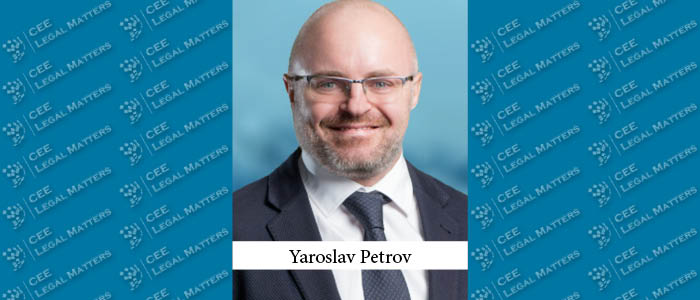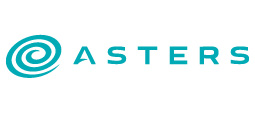A summary of recent legislative developments in the fields of energy and natural resources in Ukraine.
Electricity
- Ensuring stable functioning of the electricity market | On 30 April, the NEURC adopted amendments to the Resolution on Ensuring Stable Functioning of the Electricity Market, Including the Financial Condition of Electricity Market Participants for the Period of Martial Law in Ukraine. The amendments include:
- introduction of a provision on tracking negative balances by NPC Ukrenergo
- providing for an exception for aggregators in applying the rule according to which market participants, when conducting transactions for the purchase and sale of electricity under bilateral contracts, must avoid transactions that result in a negative balance of more than 1 MWh for the billing period
- Amendments to the Procedure for Setting of Tariffs for Electricity Transmission Services | On 30 April, the NEURC adopted amendments to the Procedure for Setting (Formation) of Tariffs for Electricity Transmission Services, which bring the legislation in line with the Transmission System Code (TSC) by:
- developing the Transmission System Operator's investment programme and reports on its implementation
- streamlining the procedure for submission and timely review of the investment programme
- determining a detailed list of necessary supporting materials for the measures proposed to be implemented under the investment programme
- settlement of the implementation issue of the Transmission System Operator's investment programme measures
- Simplifying the connection of generating facilities to the power grids | On 8 May, the NEURC adopted amendments to NEURC Resolution No. 352 to simplify the connection of generating facilities to the power grids. The Resolution provides for:
- a procedure for the rapid connection of generating facilities by 1 January 2026, subject to a certificate from the military administration on the need for urgent connection of such facilities
- business entities planning to install solar or wind power facilities must install energy storage facilities with a capacity equal to or greater than the capacity of the generating facility and a capacity to ensure 4 hours of operation at full capacity
- the simplified procedure does not limit the possibility of connecting to the electricity grids by the Code of Distribution Systems or the Procedure for Temporary Connection
- Use of additional revenues by SE Guaranteed Buyer | On 17 May, the NEURC adopted the Resolution on Using Additional Revenues by SE Guaranteed Buyer. The company was permitted to use funds from sources other than payment for services. This funds ca be used to ensure an increase in the share of electricity production from alternative sources and revenues from sales on the electricity market, including fines and penalties received.
- Possibility of offsetting similar counterclaims | On 22 May, the NEURC adopted the Resolution on Ensuring the Stable Functioning of the Electricity Market, Including the Financial Condition of Electricity Market Participants for the Period of Martial Law in Ukraine. The Resolution allows for offsetting similar counterclaims by market participants in the event of mutual debts arising under an agreement on the settlement of electricity imbalances or an agreement on participation in the balancing market.
- Improvement of the Methodology for Setting the Fee for Connection to the Transmission and Distribution Systems | On 28 May, the NEURC adopted amendments to the Methodology for Setting the Fee for Connection to the Transmission and Distribution Systems. The amendments include:
- improvement of the calculation of payment rates for standard and non-standard connection
- updating the system operators' reporting to the regulator
- introduction of a connection monitoring system for the exchange of information between operators and the regulator
- improving approaches to calculating the deficit or surplus of funds
- establishing the specifics of determining the fee for connecting electrical installations to a small distribution system
- Adaptation of the Transmission System Code to European norms | On 28 May, the NEURC adopted the amendments to the Transmission System Code, which provide for:
- clarification of the provisions in line with European legislation on the participation of the Ukrainian Transmission System Operator in the compensation agreement between transmission system operators
- alignment of the provisions of the Transmission System Code with the requirements of the Law of Ukraine "On the Electricity Market" regarding operations with wholesale energy products
Gas/oil
- Increased capacity at the borders | On 30 April, the NEURC adopted the Resolutions on Increasing Capacity at the Entry Point of the Interconnector with Poland, Moldova and Romania, which agreed on new increased capacities between the gas transmission system of the respective country and Ukraine and general terms and conditions to which transmission customers must agree to access capacity at the mandatory stage of allocation of new capacity at the border.
- Improvements to gas storage regulation | On 30 April, the NEURC adopted the amendments to the Methodology for Determining and Calculating Tariffs for Natural Gas Storage (Injection, Withdrawal) Services for Gas Storages Subject to Regulated Access, which provide for improvements to the provisions in connection with the extension of capacity allocation periods, including in terms of changing the name of natural gas storage, injection and withdrawal products.
- Simplification of connection procedures | On 30 April, the NEURC adopted amendments to the Resolution on Peculiarities of Providing Services for Connection to Gas Distribution Systems during Martial Law, which simplifies the procedures for connecting gas turbine or gas piston plants, including cogeneration plants, to gas distribution systems.
Licensing
- Amendments to the tariff setting for dispatching services | On 30 April, the NEURC adopted amendments to the Procedure for Setting the Tariff for Dispatching (Operational and Technological) Services, which brought the procedure in line with the amendments to the Transmission System Code and the Procedure for Monitoring Compliance by Licensees Operating in the Energy and Utilities Sectors with the Legislation in the Relevant Areas and License Conditions to ensure the principle of transparency.
- Amendments to the control over compliance with license conditions | On 8 May, the NEURC adopted amendments to the Procedure for Monitoring Licensees' Compliance with License Conditions and Legislation in the Energy and Utilities Sectors to clarify the provisions on non-extension of its effect to violations related to abuse of power in the wholesale energy market. The amendments also clarify the requirements of the Methodology for Determining the Amounts of Excessive or Under-received Income of a Transmission System Operator from Electricity Transmission Activities.
- Improvement of organisational requirements for licensed activities regarding REMIT | On 8 May, the NEURC adopted amendments to certain resolutions that improve the organisational requirements for conducting licensed activities. These amendments include the need to register as a participant in the wholesale energy market, provide insider information, and avoid manipulation or attempts to manipulate the wholesale energy market.
- Regulation of certain inspections | On 12 June, the NEURC adopted amendments to the Procedure for Monitoring Compliance by Licensees Operating in the Energy and Utilities Sectors with the Legislation in the Relevant Areas and Licence Conditions to regulate certain inspections of business entities located and operating in the regions of Ukraine where active hostilities are ongoing and territories occupied by russia.
Regulation of energy markets
- Amendments to market monitoring | On 4 June, the NEURC adopted amendments to the Procedure for Monitoring Markets in the Energy and Utilities Sectors, which regulate certain issues related to the definition of the object and subject of monitoring, expansion of the monitoring objective, tasks of monitoring units, data sources, and the procedure for using monitoring results.
- Improvement of the mechanism for submitting bids by market participants | On 4 June, the NEURC adopted amendments to the Market Rules to improve the mechanism for submitting bids by market participants for ancillary services auctions and the balancing market. The amendments also improve the Procedure for the Provision of the Load-Following Service for Renewable Energy Sources with Support.
- Amendments to the Balancing Market settlements with the use of Escrow | On 26 June, the NEURC adopted amendments to the Market Rules to improve the functioning of the balancing market settlement mechanism with the use of escrow accounts.
Other
- Strategy of the climate policy of Ukraine until 2035 | On 30 May, the government approved the Strategy for the Formation and Implementation of the State Climate Change Policy for the period up to 2035 and the operational plan for its implementation in 2024-2026 with the aim of creating a state climate change policy to achieve sustainable development and ensure an effective transition to low-carbon development of the state and to take into account the goals of the state climate policy during the post-war reconstruction of Ukraine.
- Draft law on the basic principles of climate policy | On 31 May, the Parliament received a Draft Law on the Basic Principles of State Climate Policy, which aims to define the principles of the state climate policy aimed at ensuring low-carbon development of Ukraine, achieving climate neutrality, adaptation to climate change, and fulfilling Ukraine's international obligations in this area. The draft act defines:
- peculiarities of forming and achieving the goals of the state climate policy
- the principles of climate planning at the national, regional, and local levels
- peculiarities of reporting by the requirements of the United Nations Framework Convention on Climate Change and data collection for these purposes
- basic principles of the national system for tracking the implementation of climate change policies, measures, and forecasts
- Stabilisation of the unified energy system | On 7 June, the Cabinet of Ministers adopted a decree that provides for several measures to stabilise the operation of the unified energy system of Ukraine. According to the document:
- ministries, other central executive authorities, regional and Kyiv city state administrations must ensure energy savings by 31 December 2024
- the restrictions do not apply to healthcare facilities, enterprises for which air conditioning is part of the technological process, and technical measures for traffic management
- the respective saving measures do not apply to electricity generated by consumers' own power-generating facilities for their needs
- Amendments to the Procedure for Determining the Amount of Fines | On 12 June, the NEURC adopted amendments to the Procedure for Determining the Amount of Fines Imposed by the National Energy and Utilities Regulatory Commission to clarify the circumstances under which a reduction in the amount of a fine may be applied.
- Establishment of a register of biofuel installations | On 18 June, the Parliament decided to adopt as a basis the draft Law of Ukraine on Amendments to the Law of Ukraine "On Alternative Fuels" on the establishment of a register of installations using biofuels as the only type of fuel, submitted by the Cabinet of Ministers of Ukraine.
- Amendments to the Methodology for Formation, Calculation and Setting of Tariffs | On 19 June, the NEURC adopted amendments to the Methodology for Formation, Calculation and Setting of Tariffs for Electricity and/or Heat Energy Generated at Combined Heat and Power Plants, Thermal Power Plants and Cogeneration Plants, which are aimed at improving the process of formation, calculation and setting of tariffs for electricity and heat energy generated at combined heat and power plants, thermal power plants and cogeneration plants. The amendments aim to ensure Ukraine's energy security in the face of a coal shortage caused by Russia's military invasion and problems with coal supplies.
- Introduction of auctions for ancillary services providers | On 26 June, the NEURC adopted amendments to the Market Rules and Methodology for Pricing Ancillary Services, which provide for:
- introduction of special auctions for the purchase of frequency control reserves and active power from an ancillary service provider or potential ancillary service provider
- ensuring participation of ancillary services providers and potential providers in the auctions
- contractual terms and guarantee fees for participation in auctions
- ensuring proper characteristics of equipment for the provision of services
- clarifying the application of prices for ancillary services throughout the entire service provision period
By Yaroslav Petrov, Partner, Asters


